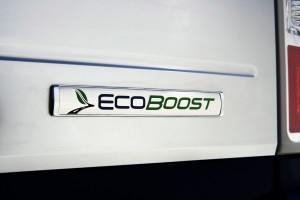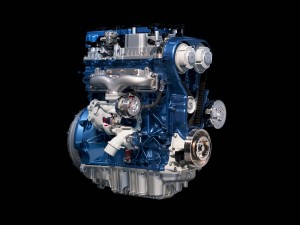 Ford engineers say they will borrow more diesel engine technology to develop the second generation of the EcoBoost engine. The result will be improved power and better fuel economy compared with the first-generation engines.
Ford engineers say they will borrow more diesel engine technology to develop the second generation of the EcoBoost engine. The result will be improved power and better fuel economy compared with the first-generation engines.
?The first generation of EcoBoost applied some of the key technologies found in powerful diesel engines — such as direct injection and turbocharging — and optimized them for the gasoline engine,? Bob Fascetti, Ford?s director of large gas and diesel engine engineering, said in a statement. ?The next generation of EcoBoost engines will continue that path.?
Ford wants to get close to the same driving characteristics from the EcoBoost engine as it can from a diesel engine, such as strong low-end torque and good fuel economy. By borrowing from diesel technology, the result also will be a cleaner running EcoBoost engine that generates more power and delivers about a 5 percent gain in fuel economy over the current EcoBoost engines.
EcoBoost technology combines direct fuel injection, variable cam timing and turbocharging to reduce fuel consumption, carbon dioxide emissions and vehicle weight. But it gives drivers the performance of a bigger engine.

Ford said its current generation of 2.0-liter EcoBoost four-cylinder and 3.5-liter EcoBoost V-6 engines deliver between 10 and 20 percent better fuel economy than comparable normally aspirated V-6 and V-8 engines, respectively.
Ford said it will launch three new EcoBoost engines by year end. Those are:
? A 1.6-liter four-cylinder for the European C-Max people mover.
? A 2.0-liter four-cylinder for the next-generation Ford Explorer and Edge crossover.
? The 3.5-liter V-6 for the F-150 pickup.







